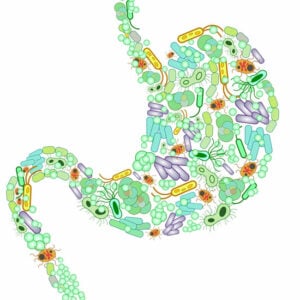Why do some antibiotics cause diarrhea and is this a cause for concern?
Question – I have recently completed a course of antibiotics prior to having a dental procedure. Now I am experiencing diarrhea. Should I be concerned?
Answer – Antibiotic therapy is a common source of diarrhea in both hospitalized patients and outpatients. Approximately 20% of patients taking antibiotics will develop diarrhea.
There are two common causes of diarrhea in this setting.
Change in normal colonic flora – Antibiotics can cause a change in the normal colonic flora or the type of bacteria that normally reside in the colon. Large numbers of bacteria reside in the colon, which play a very important role in maintaining the integrity of the lining (mucosa) of the colon and assisting in digestion of unabsorbed carbohydrates.
When antibiotics are taken, they alter the number and types of bacteria present in the colon. The result is an impaired absorption of carbohydrates. This leads to water secretion and looser stools. The colonic bacteria are also crucial in producing organic acids, which act as vital nutrients in maintaining mucosal integrity. Should the mucosal integrity be impaired, one’s ability to reabsorb water in the colon will be limited. This can contribute to increased stool volume and diarrhea.
C. difficile – The second factor, which can cause diarrhea after antibiotic use, is C. difficile colitis. C. difficile is a bacterium that can increase in number after a course of antibiotics. This bacterium produces a toxin that causes inflammatory changes in the colon. These inflammatory changes result in both impaired water reabsorption in the colon and secretion of fluid resulting in diarrhea.
Probiotics
Probiotics, which are microorganisms that are ingested to provide a beneficial effect, have been shown to decrease the risk of antibiotic associated diarrhea. There are numerous preparations available over-the-counter. Discuss treatment options using probiotics with your healthcare provider.
– Thomas Puetz, MD
Learn more about bacteria in the GI tract
Contributor
Thomas Puetz, MD, Gastroenterology, Aurora Advanced Healthcare, Mequon, WI














